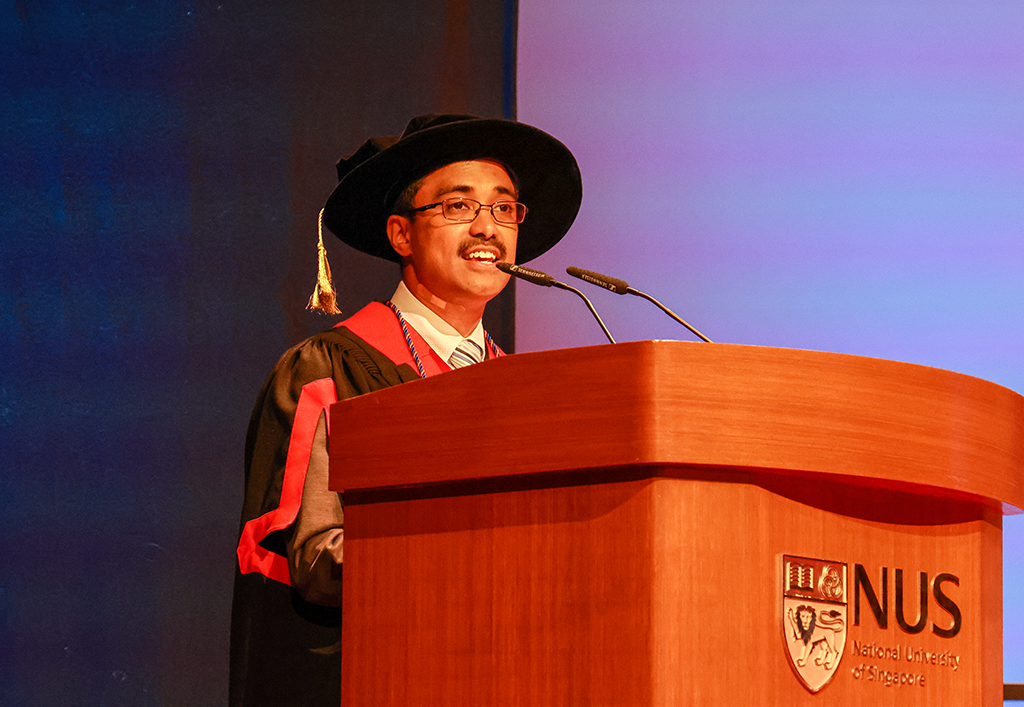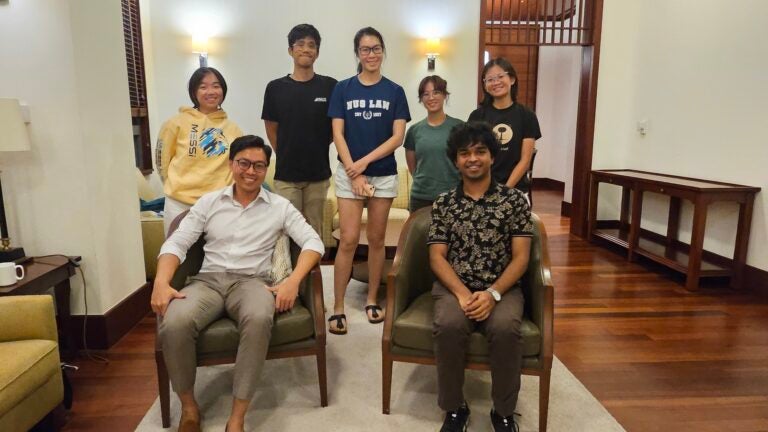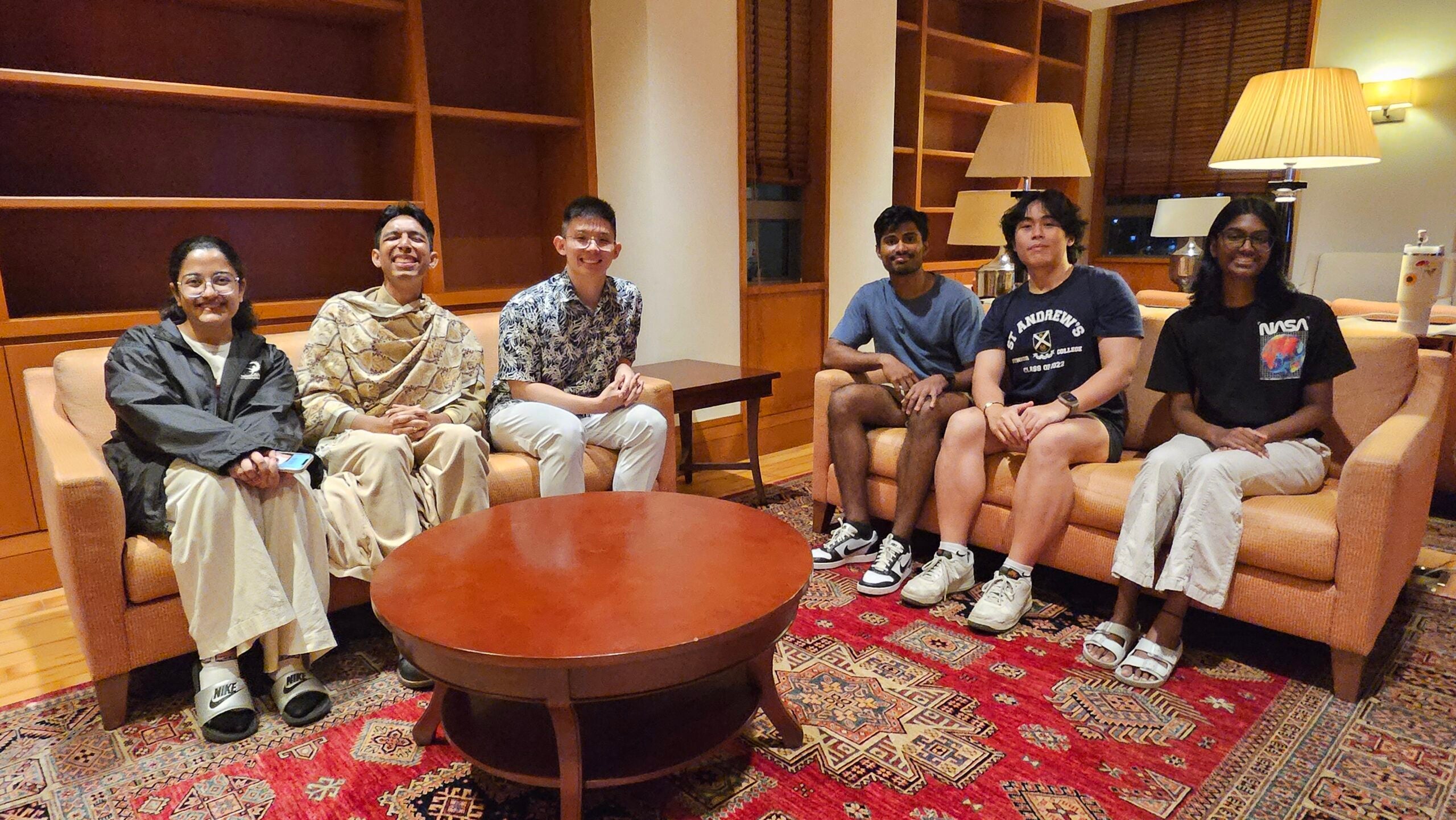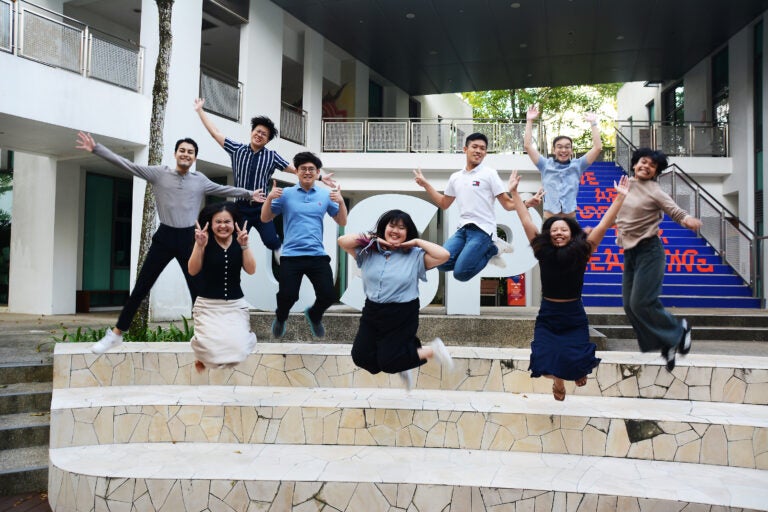By Ishani Anirudh Patil (Political Science + NUSC’25) .
 Dr Aaron Maniam, NUS College Commencement Speaker 2025.
Dr Aaron Maniam, NUS College Commencement Speaker 2025.
Dr Aaron Maniam was the Speaker for the NUS College (University Scholars Programme) Commencement Ceremony in 2025. During a chat with us, he shared key insights for the graduated class along the theme of ‘Navigating Uncertainties’. This is the first in a two-part series on our conversation with Dr Maniam.
Dr Maniam is a researcher and academic at the University of Oxford’s Blavantik School of Government. His focus lies at the intersection of technology, public policy, and public administration, as well as strategic futures and public sector foresight. He currently co-chairs the World Economic Forum’s Global Future Council on GovTech and Digital Public Infrastructure and serves on the OECD’s Expert Group on Artificial Intelligence Futures. With two decades of experience in the Singapore Public Service, his perspectives link theory and practice.
Futures Thinking in a VUCA World
We live in an increasing VUCA (Volatile, Uncertain, Complex, and Ambiguous) world, which is only exacerbated by the growing prominence of technology and pervasive global instabilities. As our graduates venture into the real world, how should they confront the ever-growing reach of technology, such as artificial intelligence, into their lives and workspaces?’
“I would say I’m an augmentationist,” Aaron states. “If we are willing, technology can always make us better”. In his experience, the best students are those who have gotten better with using Artificial intelligence in innovative ways, rather than the ones who stayed stagnant in their interactions with it. For example, rather than manually going through websites to source research, are they crafting specific prompts for AI to gather sources on a large scale and disproportionately faster? While some AI aided tasks may seem simple – only saving 5 to 10 seconds – this time adds up to massive productivity savings when aggregated.
Should we be worried that Artificial Intelligence will undermine hard work? Not necessarily. “AI will only make you lazy if you are a lazy person,” he asserts. What about its ability to replace human-driven output? Here, he states that one must understand what AI is good at, but also recognise what AI cannot surpass human beings in. While it is greatly adept at researching sets of issues, understanding the state of the world, and generating ideas, it lags in the uniquely human functions of evaluation, connecting ideas, and making assessments (“No AI that we have seen can come up with decisions unless fed with significant guidance via prompts and training data”).
His advice to our graduates is to harness AI to get to speed with issues as quickly as possible, thus allowing them to perform irreplaceable human functions of meaning making, judgement and interpretation.
The Power (and Challenge) of Interdisciplinarity
While an interdisciplinary education is one of the core tenets of NUS College, maintaining the spirit of interdisciplinarity throughout our lives is something that many struggle with. As we pursue our respective fields, “there is definitely a certain tension between two competing dynamics: the exposure to a variety of different skills versus the deep focus that an expert might have”.
Yet, Aaron highlights that this concern may not be as difficult to overcome as it seems. It is nearly impossible to explore deeply into a single field (be it philosophy, political science, sociology), without bumping elbows with another field relatively quickly. In fact, “If we are truly scholars of the real world, we will rapidly find ourselves dealing with multidisciplinarity, because the real world is inherently so”. This is why, in Aaron’s view, the most interesting research is increasingly coming out of areas where the interstices of disciplines are meeting each other.
“All of us, I suspect, find our way towards multidisciplinarity at some point,” says Dr Maniam. He suggests that there always exist areas of interdisciplinarity if one knows where to look for them. As an award-winning poet, he has drawn thought-provoking links between the intersections of poetry and policymaking – two fields that seem unrelated at first glance.
“Poems fundamentally aim to find names and metaphors to understand the nature of the world; very often, this needs to be done in policy as well”. Both poets and policymakers share the basic instinct to attribute clear, precise names for phenomena and enhance understanding through metaphors. Furthermore, just as poetry is not focused on the mainstream, choosing to shed light on little observed perspectives, policymakers should similarly be interested in neglected causes.
Choosing a Path: Private, Public or People Sector?
We asked Dr Maniam for his advice to students when deciding which sector to pursue. His first tip was to consider the trade-offs in the choice. “A graduate must ask themselves – out of the strengths that I notice and the dysfunctions of each sector – which matters the most to me? Ergo, what values do I seek, and which downsides are bearable?”
While noticeable regularities in each sector and boundaries between distinct sectors are real, they can also be transcended. For example, the tech industry requires an intersection of all three sectors, as does entrepreneurship. Aaron has enjoyed helping different sectors understand each other better, through learning the languages of various stakeholders and working to facilitate a safe space to ask cross-sectoral questions.


